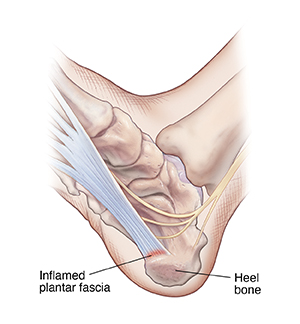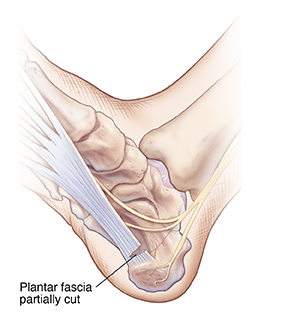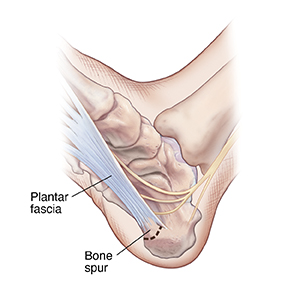Foot Surgery: Plantar Fascia Problems
Strained plantar fascia
Some heel problems can result from poor foot mechanics. If your foot moves incorrectly, your ligaments and tendons can become strained. This causes pain and swelling.
Your plantar fascia is the ligament that extends from the heel of your foot to the ball of your foot. If your foot flattens too much or too little as you move, you may strain your plantar fascia. The bottom of your foot may hurt when you stand up after resting, in the morning, or after prolonged movement. Most people with plantar fascia pain can be helped with nonsurgical treatments. But surgery can be considered if these treatments fail.

Plantar fascia release
To release your plantar fascia from tension, it can be partly cut near the heel bone. To keep you from walking on your foot, you may have to use crutches for a few weeks. As you heal, fibrous tissue fills the space between your heel bone and your plantar fascia.

Plantar heel spur
A heel spur may form when your plantar fascia tugs on your heel bone. The heel spur can then cause painful walking. Also, a nerve may sometimes become trapped. This can also cause or increase foot pain and swelling.

Spur removal
Your plantar fascia may first be released. Then, if the nerve is trapped, it also can be released. If the heel spur affects your walking, it may be removed. Spur removal is rarely needed. You may need crutches for a few weeks. As you heal, fibrous tissue will grow between your heel bone and your plantar fascia.